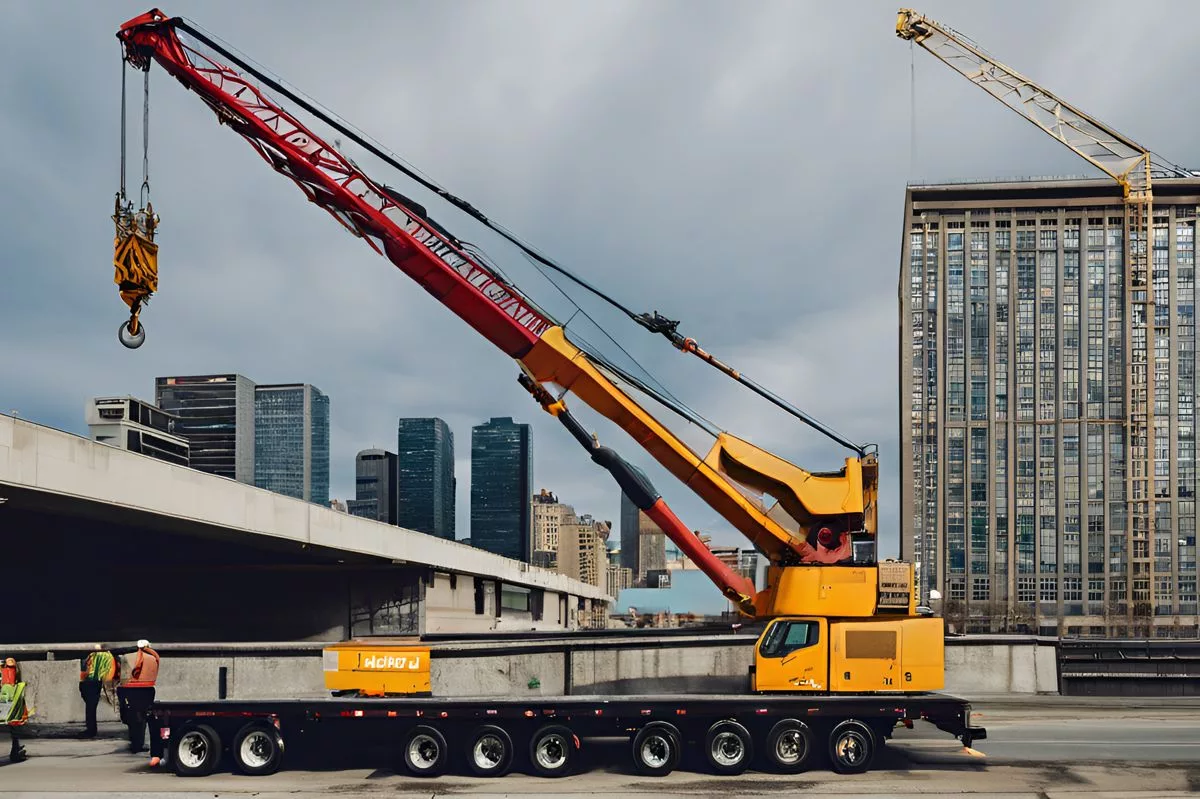Cape Town is introducing a new by-law to stop unauthorized construction. The by-law will allow the city to seize assets of individuals engaging in illegal building operations and set clear guidelines for the impoundment procedure. Deputy Mayor Alderman Eddie Andrews believes that the new by-law will encourage prompt action against developers who persist with their building operations unlawfully, even after being directed to stop. The proposed changes are open for public views until September 23, 2024.
Cape Town is introducing a new municipal planning by-law (MPBL) aimed at curtailing the rise of unauthorized building practices in the city. The by-law will grant the city the power to seize the assets of individuals engaging in illicit construction operations, and will also set out clear guidelines for the impoundment procedure. The proposed changes are open for public views until September 23, 2024.
The Advent of a New Regulation
The breathtaking locale of Cape Town, celebrated globally for its scenic beauty and rich cultural roots, is preparing for a pivotal shift – the implementation of a fresh municipal planning by-law (MPBL). This recently suggested regulatory adjustment is targeted towards mitigating the volumes of unauthorized building practices in the city, an issue that has seen a steady surge over the past years.
Deputy Mayor Alderman Eddie Andrews, who also holds the mantle as the Mayco member for spatial planning and environment, has been a vanguard in pushing for this transition. He staunchly believes that this novel by-law will capacitate the City to take prompt action against developers who persist with their building operations unlawfully, even after directives to cease have been issued.
The Objectives of the New By-law
This impending regulation is no mere reaction to an escalating tendency; it mirrors the City’s devotion to preserving a neat and visually pleasing urban landscape. The Deputy Mayor indicates that certain developers habitually disregard cessation directives, persisting with their operations regardless of potential penalties. This state of affairs necessitates immediate and impactful countermeasures, which is the primary objective of the MPBL and its fresh provisions.
In accordance with this forthcoming by-law, the City will hold the power to seize machinery and equipment employed in illicit construction. This authority stretches beyond the immediate assets of the builders; the City can also seize portable property owned by the owners and contractors participating in the unlawful activity. This significant inclusion aims to deter those who have been disregarding the pre-existing Municipal Planning By-law and the notifications issued under the Building Regulations and Building Standards Act.
The Proposed Framework and Its Provisions
The impending by-law also lays out a spectrum of conditions, setting a transparent structure for the impoundment procedure. These provisos encompass the threat of property seizure should the owner defy or prompt the contractor to defy the stop-work order, and the responsibility of the owner to inform the contractor and third-party owner of such an order within a five-day span from its issuance. The City may also communicate its intent to seize movable property via various means, including email, the person handling the work, or a notice board at the entry point of the property where the illicit work is in progress.
However, this newly proposed regulatory mechanism is not lopsided. It introduces provisions permitting affected parties to present their defenses to the City, articulating reasons why their property should not be impounded. It further highlights that the power to impound is optional, and that any form of hindrance or prevention of the impoundment qualifies as a violation.
The impending by-law also outlines distinct rules for the return of impounded property. The property will be returned only upon the payment of an administrative penalty fee and the expenses of removal and storage. If the impounded property is not collected within the specified period, the City may seek legal authorization to sell or dispose of it.
Implementation and Public Participation
The by-law is engineered to be sympathetic to Cape Town’s distinctive built environment and societal reality, and also signifies the outcome of litigation in this sphere. For instance, the Municipal Planning Tribunal recently levied a record R1 million penalty for unsanctioned building work in Bellville, in spite of the City issuing a stop-construction notice. This case not only reveals the gravity of the issue but also the City’s commitment to tackle it.
The proposed changes to the MBPL are open for public views, prompting residents, stakeholders, and parties of interest to express their opinions and viewpoints. This collaborative approach underlines the City’s commitment to crafting a regulatory framework that respects its diverse stakeholders, even as it strives to safeguard Cape Town’s built environment.
This is a paramount juncture for Cape Town. The City is calling upon its citizens to contribute to shaping its future – a future that is well-organized, sustainable, and respects both the built environment and the rights of its inhabitants. The deadline for submissions is 23 September 2024, a significant waypoint in Cape Town’s voyage towards a more disciplined and accountable urban landscape.
What is Cape Town’s new by-law about?
Cape Town’s new by-law is aimed at curbing the rise of illegal construction practices in the city by granting the city the power to seize assets of individuals engaging in illicit construction operations and setting out clear guidelines for the impoundment procedure.
Why is this new by-law necessary?
The new by-law is necessary because certain developers have been disregarding cessation directives, persisting with their operations regardless of potential penalties. This state of affairs necessitates immediate and impactful countermeasures to preserve a neat and visually pleasing urban landscape.
What are the objectives of the new by-law?
The primary objective of the new by-law is to encourage prompt action against developers who persist with their building operations unlawfully, even after being directed to stop. Additionally, it aims to deter those who have been disregarding the pre-existing Municipal Planning By-law and the notifications issued under the Building Regulations and Building Standards Act.
What are the provisions of the new by-law?
The provisions of the new by-law include granting the City the power to seize machinery and equipment employed in illicit construction, and the ability to seize portable property owned by the owners and contractors participating in the unlawful activity. It also sets a transparent structure for the impoundment procedure, with provisions permitting affected parties to present their defenses to the City.
How does the new by-law affect property owners and contractors?
Property owners and contractors engaging in illegal construction may have their assets seized by the City, including machinery, equipment, and portable property. They are also responsible for informing the contractor and third-party owner of any stop-work orders within a five-day span from its issuance.
How can the public participate in the new by-law?
The proposed changes to the MBPL are open for public views, prompting residents, stakeholders, and parties of interest to express their opinions and viewpoints. The deadline for submissions is 23 September 2024, and the City is committed to crafting a regulatory framework that respects its diverse stakeholders, even as it strives to safeguard Cape Town’s built environment.









